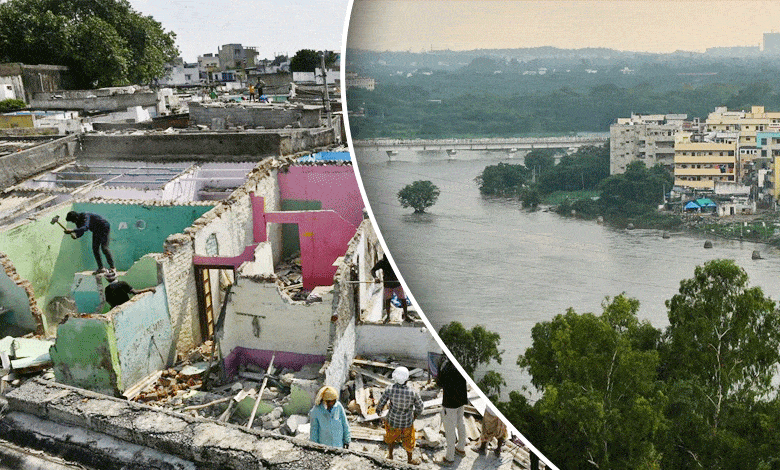Musi River Project: Telangana Vows to Uphold Transparency in Land Acquisition
The Musi Riverfront Development Project exemplifies Telangana’s commitment to sustainable urban development. By adhering to the LARR Act, of 2014, the state aims to ensure that affected residents are fairly compensated and provided with dignified resettlement options.

Hyderabad: The Telangana government has assured the Centre of its commitment to fair and transparent displacement and rehabilitation under the Telangana State Right to Fair Compensation and Transparency in Land Acquisition, Rehabilitation, and Resettlement Act (LARR), 2014. This assurance relates to households being displaced along the banks of the Musi River as part of the state’s ambitious Musi Riverfront Development Project.
Table of Contents
Also Read: Land Acquisition for Hyderabad Metro Phase II Moves Ahead Rapidly
Parliamentary Discussion Highlights
During the winter session of Parliament on November 27, concerns about the impact of the project were raised by BRS MP KR Suresh Reddy in the Rajya Sabha. He questioned whether the Centre intended to intervene in potential homelessness caused by demolitions along the Musi Riverbanks and sought clarity on general guidelines for such evictions in Hyderabad.
Responding to the query, Union Minister of State for Housing and Urban Affairs, Tokhan Sahu, stated that urban planning falls under the jurisdiction of urban local bodies, as specified in the 12th Schedule of the Constitution. In this case, the responsibility lies with the Greater Hyderabad Municipal Corporation (GHMC). The Centre’s role, he added, is restricted to providing financial and technical support to state governments for urban projects.
State’s Rehabilitation Efforts and Project Scope
The Telangana government informed the Centre that it had already provided housing to over 15,000 families residing on the Musi Riverbed and its buffer zones. These allocations were made on humanitarian grounds as part of a planned rehabilitation and resettlement effort.
According to the state, the Musi Riverfront Development Project aims to:
- Address river pollution.
- Mitigate urban flooding.
- Restore the river’s ecological balance.
The project, the government clarified, is being implemented in a phased manner with minimal disruption to local communities. It explicitly stated that no widespread demolitions or mass homelessness would occur due to the project. Instead, a structured rehabilitation process has been integrated to ensure fairness for all affected households.
Telangana’s Approach to Sustainable Development
The Musi Riverfront Development Project exemplifies Telangana’s commitment to sustainable urban development. By adhering to the LARR Act of 2014, the state aims to ensure that affected residents are fairly compensated and provided with dignified resettlement options.
Beyond addressing ecological concerns, the project focuses on urban beautification, flood prevention, and creating recreational spaces for the public. It represents a balance between environmental restoration and urban infrastructure development.
Future Plans and Monitoring
The state government has also expressed its intention to:
- Conduct consultations with stakeholders, including affected families and local representatives.
- Monitor the rehabilitation process to ensure transparency and fairness.
- Utilize advanced urban planning techniques to minimize environmental and social impacts.
Conclusion
The Telangana government’s assurances, coupled with its emphasis on fair displacement policies and ecological restoration, highlight its determination to address urban challenges holistically. The Musi Riverfront Development Project is not only a step toward revitalizing the historic Musi River but also a testament to the state’s vision for inclusive and sustainable growth.
